#gordium
Text
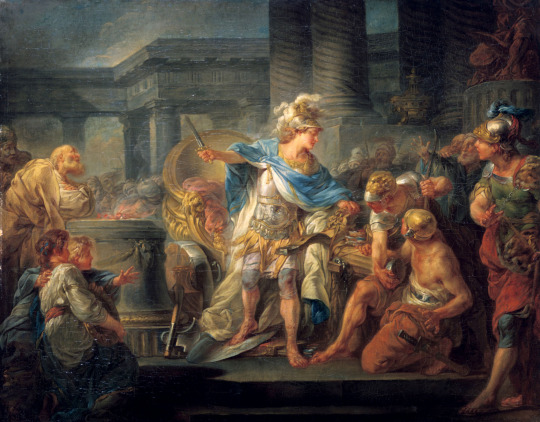
Alexander cuts the Gordian Knot by Jean-Simon Berthélemy
#alexander the great#alexander#gordian knot#jean simon berthélemy#art#history#ancient greek#macedonian#macedonia#macedon#europe#phyrgian#oracle#prophecy#destiny#legend#gordium#asia#gordias#king midas
24 notes
·
View notes
Photo

Phrygie
La Phrygie était le nom d'un ancien royaume anatolien (12e-7e siècle av. J.-C.) et, après sa disparition, le terme fut appliqué à la zone géographique générale qu'elle couvrait sur le plateau occidental de l'Asie mineure. Avec sa capitale à Gordion et une culture qui mélangeait curieusement des éléments anatoliens, grecs et proche-orientaux, l'une des figures les plus célèbres du royaume est le légendaire roi Midas, celui qui avait acquis la capacité de transformer en or tout ce qu'il touchait, même sa nourriture. Après l'effondrement du royaume suite aux attaques des Cimmériens au VIIe siècle avant J.-C., la région passa sous le contrôle des Lydiens, des Perses, des Séleucides, puis des Romains.
Lire la suite...
4 notes
·
View notes
Text
Yochedau Gordium’s Bowl of Liquid Light
• [x] glows and illuminates
• [x] sloshes and spills when disturbed
• [x] commands attention
• [x] does not burn those who touch it
• [x] fills the mind with song
• [x] takes the form of your fantasies
3 notes
·
View notes
Text
Alexander and the Gordian knot—cutting the Gordian knot
Here’s another manifestation challenge for the masses and nothing has changed except the formatting and the execution. I hope you all find this challenge fun and helpful, and I'm always wishing you success.
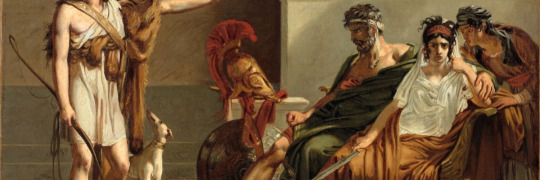
I do not consider the law of assumption to be complex but many do not share the same sentiments—and that's fine; to a lot of people, manifesting their desires seems to be an extremely difficult and tedious task. It doesn't need to be that way though and this challenge was designed to demonstrate how easily you can apply the law of assumption.
Alexander and the Gordian knot
Cutting the Gordian knot—A Law of Assumption challenge
Alexander and the Gordian knot
As the story goes, in 333 B.C. the Macedonian conqueror marched his army into the Phrygian capital of Gordium in modern-day Turkey. Upon arriving in the city, he encountered an ancient wagon, its yoke tied with what one Roman historian later described as “several knots all so tightly entangled that it was impossible to see how they were fastened.”
Phrygian tradition held that the wagon had once belonged to Gordius, the father of the celebrated King Midas. An oracle had declared that any man who could unravel its elaborate knots was destined to become ruler of all of Asia.
According to the ancient chronicler Arrian, the impetuous Alexander was instantly “seized with an ardent desire” to untie the Gordian knot. After wrestling with it for a time and finding no success, he stepped back from the mass of gnarled ropes and proclaimed, “It makes no difference how they are loosed.” He then drew his sword and sliced the knot in half with a single stroke. — History website.
“Sometimes the best answer to a complex problem is the simplest one.”
Cutting the Gordian knot—A Law of assumption challenge
We’re gonna turn the seemingly complex equation that is the Law of Assumption—into a simple task with a simple application. This challenge will last for two weeks and you can start anytime that you wish!
Rules for the challenge
Do not consume any Law of Assumption-related content during the challenge.
Disregard any questions you may have about the Law of Assumption and trust yourself.
Stick to the routine provided in this post.
Continue to apply the law of assumption after the challenge is finished.
The challenge routine
Before you start your day—I encourage you to immerse yourself in the feeling of the wish fulfilled for about ten minutes.
Throughout the day I encourage you to practice self-curiosity; imagine a state that you want to be in something that you love. Something that implies you are successful in conquering your sin. Then I want you to ask that state a million questions. Create your own questions. How would that version of me feel? How would I think? How would they speak to themselves? Is it calm in their mind? Are they disturbed by this or that? What do they do? How would they feel when they walk or speak to people? Would they be scared of what I am afraid of? How would they breathe, in a sure relaxing manner? What is their perspective on themself? How do they treat themselves? What do they see? What do they hear in their world? Of course this is all you. Every honest answer you give is you. This exercise to arouse a sleeping state of yourself within you. To stir it up and start changing from the inside out. Then start to see from their world. Hear what they hear. Feel what they feel. Frequently go back to them and become curious about a different side, or state of you! Then you will see how intimate you are with this version of you. That is is actually INSIDE you. You don't need to rearrange the outside first before you rearrange the inside but REARRANGE SELF INSIDE! If you persist in anything in life, persist in a change of Self! — Edwardart, “Self-curiosity"
When you're ready to end the day—recant your day in imagination and revise!
Troubleshooting
The 3D doesn't matter—continue to live your life as normal.
Thoughts are an indicator of your state, don't try to combat unfavorable thoughts and change your state instead.
Time doesn't matter.
Stop looking for approval in the 3D. If you're still looking for proof of your desire then you're not fulfilled.
Do not worry about the when or the how and focus on the end.
#aphrodieties#law of assumption#neville goddard#manifesation#law of manifestation#william blake#edward art#manifesting#law of abundance#self concept
87 notes
·
View notes
Text
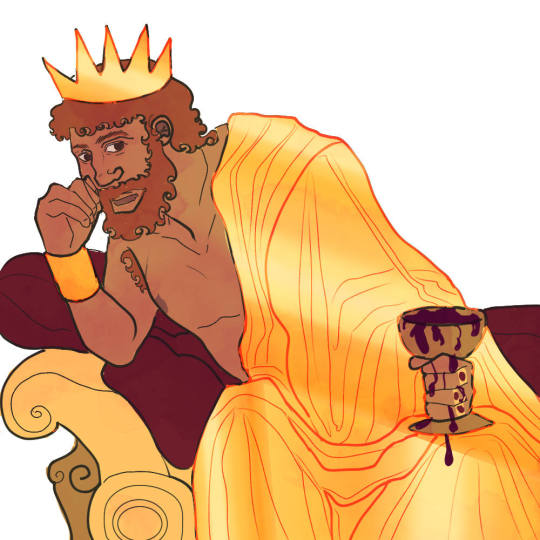
ClassicsTober23, day 22:
Midas⭐️
The most famous King Midas is popularly remembered in Greek mythology for his ability to turn everything he touched into gold. This came to be called the golden touch, or the Midas touch.
The legends told about this Midas and his father Gordias, credited with founding the Phrygian capital city Gordium and tying the Gordian Knot, indicate that they were believed to have lived sometime in the 2nd millennium BC, well before the Trojan War. However, Homer does not mention Midas or Gordias, while instead mentioning two other Phrygian kings, Mygdon and Otreus.
The Phrygian city Midaeum was presumably named after him,[citation needed] and this is probably also the Midas that according to Pausanias founded Ancyra (today known as Ankara).
#illustration#artists on tumblr#chiara cognigni's art#digital illustration#chiara's art#digital art#fanart#art#classicstober 23#classic literature#ancient greece#ancient history#mids#greek myth art#greek mythology
10 notes
·
View notes
Photo

Carel van Savoyen - The judgement of Midas -
Midas was the name of a king in Phrygia with whom several myths became associated, as well as two later members of the Phrygian royal house.
The most famous King Midas is popularly remembered in Greek mythology for his ability to turn everything he touched into gold. This came to be called the golden touch, or the Midas touch. The legends told about this Midas and his father Gordias, credited with founding the Phrygian capital city Gordium and tying the Gordian Knot, indicate that they were believed to have lived sometime in the 2nd millennium BC, well before the Trojan War. However, Homer does not mention Midas or Gordias, while instead mentioning two other Phrygian kings, Mygdon and Otreus.
Once, Pan had the audacity to compare his music with that of Apollo, and challenged Apollo to a trial of skill (also see Marsyas). Tmolus, the mountain-god, was chosen as umpire. Pan blew on his pipes and, with his rustic melody, gave great satisfaction to himself and his faithful follower, Midas, who happened to be present. Then Apollo struck the strings of his lyre. Tmolus at once awarded the victory to Apollo, and all but one agreed with the judgment. Midas dissented, and questioned the justice of the award. Apollo would not suffer such a depraved pair of ears any longer, and said "Must have ears of an ass!", which caused Midas's ears to become those of a donkey. The myth is illustrated by two paintings, "Apollo and Marsyas" by Palma il Giovane (1544–1628), one depicting the scene before, and one after, the punishment. Midas was mortified at this mishap. He attempted to hide his misfortune under an ample turban or headdress, but his barber of course knew the secret, so was told not to mention it. However, the barber could not keep the secret. He went out into a meadow, dug a hole in the ground, whispered the story into it, then covered the hole up. A thick bed of reeds later sprang up from the covered up hole, and began whispering the story, saying "King Midas has an ass's ears". Some sources said that Midas killed himself by drinking the blood of an ox.
Sarah Morris demonstrated (Morris, 2004) that donkeys' ears were a Bronze Age royal attribute, borne by King Tarkasnawa (Greek Tarkondemos) of Mira, on a seal inscribed in both Hittite cuneiform and Luwian hieroglyphs. In this connection, the myth would appear for Greeks to justify the exotic attribute.
The stories of the contests with Apollo of Pan and Marsyas were very often confused, so Titian's Flaying of Marsyas includes a figure of Midas (who may be a self-portrait), though his ears seem normal.
Carel van Savoyen or Carel van Savoy (1620/21–1665) was a Flemish painter, draughtsman and printmaker who was active in Antwerp and Amsterdam. He is mainly known for his history paintings and portraits but he also painted allegories and genre scenes.
16 notes
·
View notes
Text
"Hesiod’s observation “Kings are from Zeus,” for example, invites us to examine the attributes of Zeus’ kingship for clues about the principles of worldly sovereignty as it was understood by the Greeks in Hesiod’s day and after.
The dominion of Zeus, we have noted, was a dominion of vulnerable gods who existed in the presence of other, potentially hostile divine forces, and who endured by virtue of their mutual support of the leadership of Zeus. A world conceived in such terms paid heed to power in its elemental forms. For superior power was the key to sovereignty, and relations of power, among the gods as among communities of men, were established through victory in battle. For this reason, Zeus was not only the paramount signifier of sovereignty, but also the foremost patron of victory. Zeus was victory accomplished. The fray of battle itself was the domain not of Zeus, but of other gods: Zeus’ children, siblings, and supporters. Zeus stood for the decisive outcome, when superior power had proven itself, and he stood for the order established by victory, and for the hope that it would endure as his rule endured.
Men who reached for sovereignty invoked Zeus as a way of asserting their achievement, sometimes when it was secure, and sometimes when they only hoped it would be so. So we find that Cylon, an Olympic victor, attempted to seize the Acropolis and establish his tyranny at Athens during the "great festival of Zeus". Peisistratus and his sons commenced construction on a monumental temple of Olympian Zeus at Athens. Later, Alexander signified his assumption of sovereignty in Asia by vowing to build a temple of Olympian Zeus on the site of the Lydian palace at Sardis and by sacrificing at the temple of Zeus the King on the site of the palace of Midas at Gordium. … At Sparta, the institution of kingship had a prominence that was unique in Greece. True to the ideal type of traditional kingship, Spartan kings inherited their office and held it for life. The fact that there were two royal dynasties seems designed to assure that no individual king attained the unchallenged sway of a tyrant. Both royal families claimed descent from Heracles, and through Heracles from Zeus. Heraclid lineage was a particularly potent link to divine kingship, since Heracles, besides being an unparalleled champion, was also a mortal who was taken by Zeus to live among gods. The care with which the Spartans endeavored to assure the legitimacy of the heirs to their kingship came from the desire to keep this bloodline intact. Spartan kings in office served as chief priests, above all to Zeus, and as war leaders."
- The Mother of the Gods, Athens, and the Tyranny of Asia: A Study of Sovereignty in Ancient Religion by Mark H. Munn
2 notes
·
View notes
Text
Behold, my english assignment about my pjo crush
The sun hung bright in the middle of the sky. Below it lay the city of Gordium; the sacred place where King Midas, blessed with a golden touch by the deathless god Dionysus, ruled. His son by the goddess Demeter, Lityerses, stood bowed in front of the dais.
“Father, forgive me, I do not wish to fight this stranger. I believe he is Heracles, born by the god Zeus.” His voice shook nervously. He knew how the Touch had gotten to his father’s head.
“Nonsense, boy!” Midas barked, making Lityerses swallow nervously. “Your game is a huge attraction for the city-state! Wouldn’t you want to find a worthy husband for your sister? All you have to do is to beat a stranger, that’s it. I don’t understand why you complain so much, all the time.”
“But, your majesty,” He opted for the formal title, hoping to appease his father. “Why can’t Zoe choose her own husband? She is your daughter, does she not have her own free will?”
“Son, we know what’s good for her! What does she know? She is just like her mother; shallow and foolish. You must hold the responsibility in the family, or else misfortune would befall on all of us! Get out of the chamber and wield your sickle against your proclaimed Heracles.” Waving his cursed hand, Midas chased Lityerses out of the throne room.
Heracles was waiting in the cornfields, holding his own weapon in wait. “So, all I have to do is to beat you at reaping corn, then beat you in a fight to win your sister’s hand in marriage, right?” He asked, wearing his amusement on his face.
Lityerses’ heart pounded against his ribcage. “Yes, that is correct. I will protect my sister at all costs.”
No one has beat Lityerses at reaping corn; no one ever will. What really scared him was Heracles’ reputation as a fierce warrior and a relentless force of vengeance.
Lityerses had killed many people in the past. None of it was his choice; he had to do it, to protect his sister’s youth and chastity. He had to do it, to gain popularity for his kingdom. He had to do it, to please his father. He had to do it, so his stepmother, Midas’ wife, wouldn’t hate him for letting anyone steal the “legitimate” daughter. He hated how this cycle defined who he was, what he was used for; like a sword, not a son. As he readied his gold-frosted blade courtesy of his father, he knew that this was his duty and that he had no choice.
“Your sister is absolutely beautiful, I cannot wait till we are married! All I have to do is beat you. You have a vicious reputation, brother-in-law, but you will pay for your crimes against strangers passing through your kingdom!” Heracles laughed as he approached the Lityerses, the confidence of a well-trained fighter glinting in his eyes.
“You don’t understand anything about my predicament, stranger,” Lityerses replied, shaking the leaves off his blade. “How could you, when everyone treats you as a god?”
“You are jealous, my friend! But what for?” Heracles hefted his sword, and his expression changed as the first echo of metal against metal rang through the fields. “I, too, murdered. I killed my music instructor and was sent into exile by my own parents!” Lityerses parried, with much more difficulty than when facing his usual victims, struggling to keep up with the conversation.
Heracles’ face morphed into anger, which he channeled into his swordplay. “I was sent off to war as a young man, and I failed to protect my only brother, Iphicles, the legitimate child of my mother and the king! I was an affair, cast out and cursed by Hera for simply existing.”
Lityerses’ mind was paralyzed. His hands moved in autopilot, desperate for him to snap back to attention. A single tear flowed from his eye, leaving a track of bronze on his sword. “How—What?” He stammered, pushing back against the stronger man’s force.
“You see it, do you not? We are not that much different from each other. It is the plan of the Fates that we meet today, in this field.” Heracles somehow found time to gesture at the landscape around them. “The eldest child, carrying the weight of the family, tasked with the duty of protecting the younger sibling? Helping the parents? Carrying the responsibility? We are the same person born into different circumstances, Lityerses.” Heracles took one swipe with his sword, which paled in comparison with his tongue. An old scar on Lityerses’ leg was reopened, the tissue tearing open to form a ghastly new wound. Crumpling to the ground, Lityerses dropped his sword. Tears streamed down his face freely, sobbing in the presence of the wise warrior.
“You had the chance to break free. You still do. But you must pay for the crimes you have committed,” Heracles picked up the harvesting scythe, wrapped with leather, lying nestled in a pile of leaves. The curved tip met Lityerses’ neck.
“Please, mighty Heracles. Give me to Hades. I do not wish to withstand this torture any longer,” He wailed, wanting nothing but escape from the responsibility. “Promise me you would leave my sister alone. Sacrifice me to the river Maeander, where my sins will be washed away like my father’s touch.”
“You must listen, my brother!” Heracles commanded. “This is not forever. Death is only a temporary escape, for soon your father, your sister, and your stepmother will join Death’s ranks, and this cycle will stretch on forever. If you only—”
“No, please! Do not meddle in my choices. Kill me like I did those innocents.” Lityerses had no interest in diplomacy. He could feel Death’s cold hands grappling at his arms as Heracles obliged, the blade kept sharp for harvest digging into his flesh.
1 note
·
View note
Text
The Bible intelligently mentions the most important conquerors of the ancient or pre-Roman world, the Bible mentions Nebuchadnezzar, Sennacherib, Darius, and also why not the macedonian Alexander the Great.
But in a questionable way when the Bible describes the actions of Alexander the Great, it makes a certain silence that cannot be overlooked. It is known by historians that Alexander the Great was a benevolent ruler with most of the conquered nations and that he was also a person interested in spiritual matters. In fact, he visited the oracle of Gordium where he untied the famous knot that was associated with a famous prophecy, and also he also visited the oracle of Siwa in Egypt where he was proclaimed pharaoh. And this is logical because what else can a great conqueror desire but eternal life and immortality.
In the Bible it is never mentioned that Alexander visited the second temple of Jerusalem, being this temple such an important sanctuary according to the Bible.
But beyond all this, there is a very important prophecy from the prophet Daniel, which describes God's opinion about this conqueror, Alexander did not please God:
"Then a mighty king will arise, who will rule with great power and do as he pleases. After he has arisen, his empire will be broken up and parceled out toward the four winds of heaven. It will not go to his descendants, nor will it have the power he exercised, because his empire will be uprooted and given to others" Daniel 11:3-4.
Alexander trusted in his power and riches, and for this reason, his empire did not last, this shows that those who do not build on the wisdom of the Lord and his law build on weak foundations. With this prophecy, Daniel made it clear that men should not give themselves over to greed but rather to blessedness.

0 notes
Text
Of Gordian Knots.
I started watching ‘Ancient Empires‘ and in the very first episode found myself shaking my head when it came to the story of the Gordian Knot. I’m not a historian, I don’t play one on the Internet, but something about the observations about the mindset related to Alexander cutting the Gordian Knot in the city of Gordium.
The background they gave on Alexander was of a young man who grew up in the…
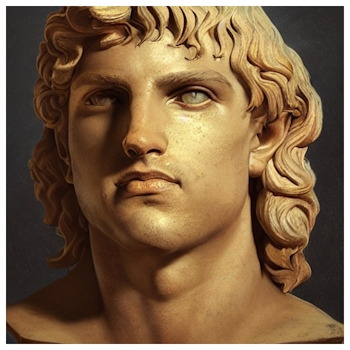
View On WordPress
0 notes
Text
This is a viewpoint editorial by Andrew Axelrod, a Bitcoin teacher and author whose LinkedIn posts have orange pilled thousands." We genuinely are a types with amnesia. We have actually forgotten a really vital part of our story."-- Graham Hancock" You have actually forgotten who you are therefore have actually forgotten me. Look inside yourself Simba. You are more than what you have actually ended up being. You should take your location in the Circle of life."-- Mufasa Most of human experience is relegated to the dustbin of history and forgotten. And possibly truly so. Life is mainly ordinary, stressed by inanities. But those limited couple of stories that make it through, endure for excellent factor. They speak with us on a much deeper level. They use an essential and long-lasting fact about the human condition. These aren't stories from a far passed by, these are stories about the here and now. The names and deals with might alter, however the stories remain the very same. We can't assist however play them out over and over once again, generation by generation. They are as pertinent to us now as ever. By contrast, bitcoin might look like the bleeding edge of innovation and without historic parallel. The reality is, bitcoin fits into a far richer and significant story about our extremely nature. Let us now explore one such story and check out how bitcoin will concern play an essential part in its most current performance. Alexander the Great, who created a large empire with the pointer of his spear and whose exploits have actually ended up being the things of legend, lacks the shadow of a doubt among those limited couple of figures that have actually stood the test of time. One of his legends sticks out in specific. The ancient Greek misconception informs of how Alexander the Great's enthusiastic project in Western Asia brought him to the Phrygian capital city of Gordium, in modern-day Turkey. As the story goes, Phrygia was a kingdom without a king. Its residents thought that the rightful successor to the throne was yet to be ordained. The real king would expose himself by fixing an intractable issue-- the Gordian knot. This knot was a horrible tangle of wrist-thick cornel bark that was twisted around an ox cart's yoke and difficult to loosen. The ox cart had actually come from the ancient king Gordias, who, himself a simple peasant, had actually been put on the throne through providence a thousand years previously. A prediction predicted that whoever might untie the knot would not just rule over Phrygia as the dead king's follower, however would go on to dominate all of Asia. This naturally attracted Alexander the Great who easily accepted the difficulty. But when he stopped working to untangle the knot, simply as everybody prior to him had, he did something that surprised the Phrygians." Alexander Slashed The Gordian Knot Apart With His Sword" by Jesús Blasco (1919-95)
Now comes the intriguing part of the story. Alexander the Great had actually plainly breached the oracle's prediction by cutting through the knot rather of disentangling it and had in the procedure desecrated a holy antique on the actions of their temple. How did the Phrygians respond? They crowned him as king on the area. How can this be? Although the Gordian knot folklore is extensively understood, it is likewise deeply misinterpreted. Many historians and thinkers draw a few of the following conclusions from it: That often the very best response to a complex issue is the most basic one. That some issues are understandable just through strong action and with fantastic aspiration. That Alexander the Great had actually lawyered his method around the prediction's words. Incredibly creative individuals see options where others do not. "Thinking outside package," we would call this. All of these analyses nevertheless fizzle and stop working to acknowledge a fundamental fact the story elegantly exposes. The essence of the legend is merely this: Alexander the Great was possibly the best dominating war lord of perpetuity.
He's definitely ideal up there with the similarity Attila the Hun, Sun Tzu, Saladin, Julius Caesar and Hannibal Barca. He was unbeaten in fight and had actually brought the majority of the civilized world to its knees. What's more, he had at his back an army of increasingly devoted Macedonian soldiers who stood waiting at evictions of Gordium, prepared to rape and pillage the city at a minute's notification. Who amongst the Phrygians would attempt obstacle Alexander the Great's approaches? If he wished to play reckless with the guidelines, who was to state otherwise. And so, the Gordian knot is at its core the story of how may makes. It's no coincidence Alexander the Great utilized his Sword to "fix" the issue. 1 But the Gordian knot has an even much deeper lesson to teach us. To comprehend its significance, we need to initially value the story's message for what it genuinely is. In the story, the knot was roped around an ox cart-- an innovation for transportation and trade, and a sign of civilization and order. As the prediction foretold, the rightful king would unshackle the ox cart and end up being ruler over the recognized world. This would be done through making use of brute strength-- by the sword. As if to drive this point house, numerous historical paintings and creative makings have actually given that portrayed a chariot rather of an ox cart. The chariot obviously being a striking sign of war and victory." Alexander the Great Cutting the Gordian Knot" (1767) by Jean-François Godefroy
The message is clear: When a scenario ends up being so gnarly and knotted regarding end up being illogical, a proverbial Gordian knot, it requires a powerful star to throw away the old ruleset and in so doing develop a brand-new order. But what if there is no sensible and effective leader to understand a sword in hand and do what is essential? After all, the Alexander the Greats of this world are couple of and far in between the long arcs of history. They are the exceptions, not the guideline. Understanding this, Alexander the Great himself never ever selected a successor to his empire-- what would be the point? When asked on his deathbed to whom his countless wealth and extensive kingdom would fall, he just reacted: " To the greatest." What followed was fifty years of warfare ... This is a number with significance that we will review. The point is however, that the Gordian knot is not constantly loosened up with a tidy cut, however is often butchered and torn. To this end, the Romans, for instance, had actually created their own method of cutting a Gordian knot whenever it raised its unsightly head. Working class people would desert whole cities in defiance, called " Succession of the Plebeians," leaving the rulers to squabble among themselves, and require a system modification." The Secession of individuals to the Mons Sacer" (1849) by B Barlocinni
This is absolutely nothing brand-new. Such shifts take place with spectacular consistency-- about every fifty years. History informs us that social orders normally take about 3 generations to weaken into a Gordian knot and need an Alexander the Great to slice through them. As the stating goes: The very first generation plants it, the 2nd grows it, and the 3rd blows it. It's a story as old as time. This procedure of civilizational decay and renewal is such an instilled and human phenomenon that it's even discovered its method into bible. The book of Leviticus recommends a so-called Year of Jubilee as a treatment for these purges. The Year of Jubilee happens as soon as every fifty years and is an unique time throughout which all financial obligation is forgiven and all slates wiped tidy-- a fantastic reset: " You will hence consecrate the fiftieth year and declare a release through the land to all its occupants. It will be a jubilee for you (Leviticus 25:1-- 4, 8--10, NASB)." Yes, the names and deals with may alter, however the story does not. And we once again discover ourselves at such an inflection point.
The existing monetary world order has actually existed for simply over fifty years, and now it's splitting up at the joints (how's that for coincidence). This newest cycle started with the abolishment of the gold requirement on August 15,1971 After deserting the gold requirement, the world has actually been running simply on paper cash, credit and obtained time. We have actually been enduring an international fiat experiment since. But this chapter is now rapidly waning. Our existing monetary system is the Gordian knot of them all and we are certainly on the cusp of a reset. The 2008 monetary crisis proffered simply a small look of what's to come. When your house of cards started collapsing in April of that year, a terrible awareness started to lastly occur to our gentility ... The tangle of financial obligation, home loan backed securities and other credit based derivatives, had actually altered into a monstrosity that was restricting and suffocating whatever. Even even worse, the monetary crisis exposed how trillions of dollars of financial obligation based derivatives were triggering contagion impacts that nobody truly comprehended-- the system's chain of ownership was no longer understandable. A case-study by EJ Schoen discusses how: " ... nobody understood who owed cash to whom or just how much was owed, triggering banks to stop trusting and financing to other banks." And when rely on the system lastly reached its terminal minute on September 29, 2008, the Dow fell 7 percent, marking the biggest single-day point drop in history. This was the plebeians' effort at severing the knot. Rather of the Roman citizenry leaving their capital, these were financiers attempting to desert ship by offering out of all positions. But naturally, the plebeians eventually stopped working to ward off the unavoidable collapse of Rome and were required to helplessly view as corrupt main coordinators debased the currency and bankrupted and rummaged a on ce-great empire. Throughout a couple of uncomfortable years, the capital city was virtually cleared out, collapsing from a height of more than a million residents to a paltry population of simply a couple of thousand. The plebeians might not avoid the civilized world from plunging into centuries of darkness. And simply as the plebeians had actually stopped working, so too had we. Missing an Alexander the Great, the knot was not cut. Rather the opposite. The knot was even more tightened up as bureaucrats put billions of printed cash into deep space. The expected solution to the Global Financial Crisis was to layer extra financial obligation on top of the system. Reserve banks have actually since continued to backstop the marketplace by pumping up the cash supply and additional debasing currency. And now, the knot has actually ended up being so twisted that even something as basic as equities, an apparently simple expression of monetary ownership, has actually ended up being an uncontrollable tangle of financial obligation: The DTCC, the world's primary trade matching service, brings in 99 percent of U.S. offer circulation and is expected to monitor who owns what. Only, they can't. As we now understand, lots of claims have actually because exposed that the shares in blood circulation go beyond the real and authorized float for thousands of business. That's how GME had a brief interest of 149%(which is difficult) and how investors owned 33% more of Dole Foods than there were Dole Food shares. The knot has actually ended up being twisted beyond belief. Back to the story of Alexander the Great: The plot never ever alters-- just the names and faces do. Therefore, the Gordian knot ends up being reversed, one method or another. Whether it be at the hands of an effective leader who can bring back order to the world, or under the stress of its own suffocating weight, plunging whatever into turmoil. But here's what has actually altered: For the very first time, we require not await an Alexander the Great.
Rather, we can wield the sword ourselves. Since of bitcoin's distinct home of self-custody, we can pick to cut the Gordian knot at any time by merely seizing our own cash. Gone are the limitless and ambiguous chains of credit-based ownership. The basic act of taking self-custody banishes all middle guys, sets fire to the constantly increasing paper currency and clarifies real ownership. The plebeians now lastly have a tool to cut the knot. And while bitcoiners might call themselves "plebs," it's about time we likewise comprehended that bitcoin is the sword. Endnotes An alternate and far lower understood variation of the misconception informs how Alexander the Great loosened up the knot by pulling the linchpin out of the yoke. This variation hasn't stood the test of time and, rather, the expression "cutting the Gordian knot" has actually penetrated our vocabulary." This is a visitor post by Andrew Axelrod. Viewpoints revealed are totally their own and do not always show those of BTC Inc or Bitcoin Magazine.
Read More
0 notes
Text
A GORDIAN KNOT IN SPACE BY FRANCIS QUINN
The Gordian Knot is an Ancient Greek legend of Phrygian Gordium associated with Alexander the Great who is said to have cut the knot in 333 BC.
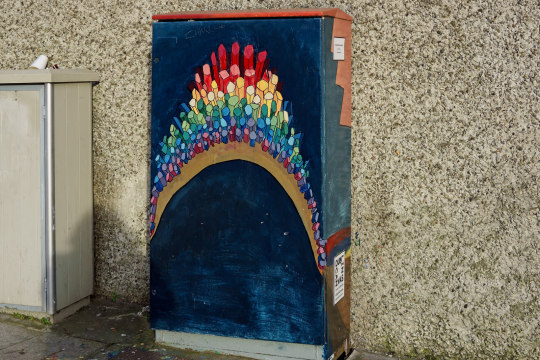
View On WordPress
#Church Street Dublin#Fotonique#Francis Quinn#Gordian Knot In Space#Infomatique#Ireland#paint-a-box#Streets Of Dublin#Urban Culture#urban expression#William Murphy
0 notes
Photo

Gordium
Gordium (alias Gordion) était la capitale de l'ancienne Phrygie, près de l'actuelle Yassihüyük. Elle était située à l'endroit où l'ancienne route royale entre la Lydie et l'Assyrie/Babylonie traverse la rivière Sangarios (le Sakarya) qui coule de l'Anatolie centrale à la mer Noire. Des vestiges de cette route sont encore visibles. Au IXe siècle avant notre ère, la ville devint la capitale des Phrygiens, une tribu thrace qui avait envahi et s'était installée en Asie. Ils créèent un grand royaume qui occupait la majeure partie de la Turquie à l'ouest de la rivière Halys (le Kızılırmak).
Lire la suite...
2 notes
·
View notes
Text
Inery Blockchain Closes Strategic Partnership and Investment with Truth Ventures Fund

Truth Ventures saw and agreed with the vision and real-world utility of Inery and believes that it has great potential for mass adoption. The mutual goal of this partnership is aimed at making decentralized database management a standard instead of an outlier,” as per Mr. Varun Datta Founder & CEO of Truth Ventures. Truth Ventures had previously invested in and partnered with Bet Neo–a pioneering gaming hub, Gordium Healthcare, Moneto Sports, and many other new companies.
0 notes
Photo
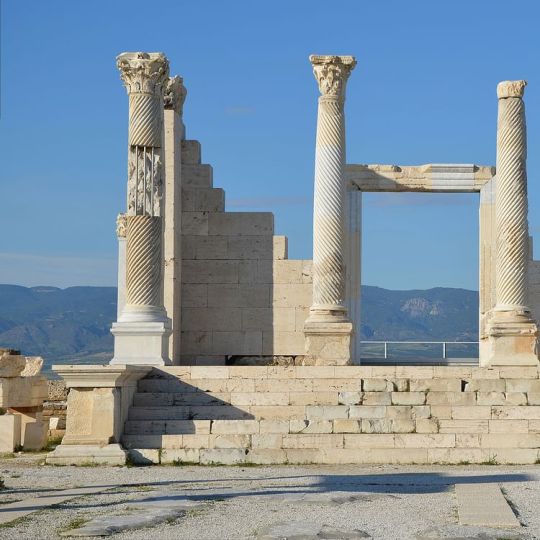
Frigia
Frigia era el nombre de un antiguo reino anatolio (siglos XII al VII a. C.) y, tras su desaparición, el término fue aplicado al área geográfica general que alguna vez abarcó en la meseta occidental de Asia Menor, con su capital en Gordio y una cultura que, curiosamente, mezclaba elementos anatolios, griegos y del Cercano Oriente. Una de las figuras más famosas del reino es el legendario rey Midas quien adquirió la habilidad de convertir todo lo que tocaba en oro, incluso su comida. A continuación del colapso del reino, tras los ataques de los cimerios en el siglo VII a. C., la región quedó bajo control lidio, persa, seléucida y luego romano.
Leer más...
1 note
·
View note
Photo

Gordium by Adam Martinakis
15 notes
·
View notes